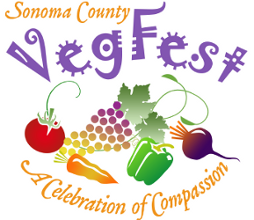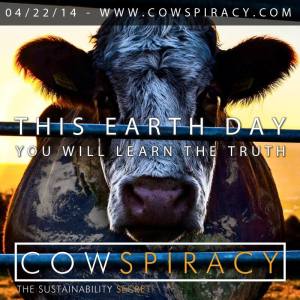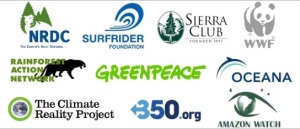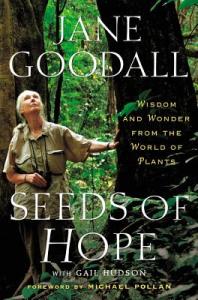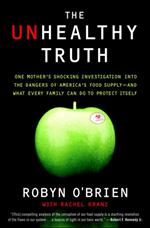Last week the The U.S. Department of Health and Human Services (HHS) and the U.S. Department of Agriculture (USDA) published the long-awaited Scientific Report of the 2015 Dietary Guidelines Advisory Committee.
One of the items that caused the most headlines were the recommendations regarding food sustainability and taking into account the environmental impact of the food we eat.
The major findings regarding sustainable diets were that a diet higher in plant-based foods, such as vegetables, fruits, whole grains, legumes, nuts, and seeds, and lower in calories and animal based foods is more health promoting and is associated with less environmental impact than is the current U.S. diet. This pattern of eating can be achieved through a variety of dietary patterns, including the Healthy U.S.-style Pattern, the Healthy Mediterranean-style Pattern, and the Healthy Vegetarian Pattern. All of these dietary patterns are aligned with lower environmental impacts and provide options that can be adopted by the U.S. population. Current evidence shows that the average U.S. diet has a larger environmental impact in terms of increased greenhouse gas emissions, land use, water use, and energy use, compared to the above dietary patterns. This is because the current U.S. population intake of animal-based foods is higher and plant-based foods are lower, than proposed in these three dietary patterns.
They lay out the situation we are in today.
The environmental impact of food production is considerable and if natural resources such as land, water and energy are not conserved and managed optimally, they will be strained and potentially lost. The global production of food is responsible for 80 percent of deforestation, more than 70 percent of fresh water use, and up to 30 percent of human-generated greenhouse gas (GHG) emissions. It also is the largest cause of species biodiversity loss. The capacity to produce adequate food in the future is constrained by land use, declining soil fertility, unsustainable water use, and over-fishing of the marine environment. Climate change, shifts in population dietary patterns and demand for food products, energy costs, and population growth will continue to put additional pressures on available natural resources. Meeting current and future food needs will depend on two concurrent approaches: altering individual and population dietary choices and patterns and developing agricultural and production practices that reduce environmental impacts and conserve resources, while still meeting food and nutrition needs. In this chapter, the Committee focuses primarily on the former, examining the effect of population level dietary choices on sustainability.
I think it is great that our government agencies are following in the footsteps of many of the European Union countries in raising awareness of these issues.
Unfortunately, they don’t go all the way to endorsing a plant-based diet. After touting the healthy alternative ways of eating, they write:
Of note is that no food groups need to be eliminated completely to improve sustainability outcomes over the current status.
However, the Advisory Committee appears to understand the issues and adds these policy changes which are similar to the issues raised in the Chatham House report I wrote about before.
Sustainability considerations provide an additional rationale for following the Dietary Guidelines for Americans and should be incorporated into federal and local nutrition feeding programs when possible. Using sustainability messaging in communication strategies should be encouraged. The application of environmental and sustainability factors to dietary guidelines can be accomplished because of the compatibility and degree of overlap between favorable health and environmental outcomes.
Consumer friendly information that facilitates understanding the environmental impact of different foods should be considered for inclusion in food and menu labeling initiatives.Careful consideration will need to be made to ensure that sustainable diets are affordable for the entire U.S. population.
Promoting healthy diets that also are more environmentally sustainable now will conserve resources for present and future generations, ensuring that the U.S. population has access to a diet that is healthy as well as sustainable and secure in the future.
The meat and dairy industries, obviously, don’t like these new guidelines and will do all they can to weaken them. This is where you and I come in.
The USDA and HHS are soliciting public comments on these guidelines through midnight Eastern Time on May 8 (Comments period has been extended). We all need to flood them with positive reinforcement for raising awareness about the impact of animal agriculture on the environment. Here’s where and how to do this.
Go to the Comments page, where you can either post comments or read ones that have already been submitted.
Please provide a brief (250 words or less) summary of the points or issues in the comment text box. A PDF is available for each section of the Advisory Report and provides page and line numbers that can be referenced when submitting written comments. If also providing literature or other resources, complete citations or abstracts and electronic links to full articles or reports are preferred instead of attaching these documents to the comment.
Please note that there is a 20 minute time limit to complete this form, and you cannot save and return to a partial comment later. If you anticipate needing more than 20 minutes to draft your comment, we suggest that you compose the message separately and copy and paste it into the form. You may also upload your comment as an attachment.
Update – Although the instructions ask for 250 words or less, the form will take up to 5000 characters. Much more than 250 words (unless you use a LOT of real long words).
The area on food sustainability is in Chapter 5, at the beginning of that chapter, if you want to reference it in your comments.
Please take the time to comment on these guidelines so that we can continue to raise awareness of this critical issue in order for us to have a better future for ourselves and our children.


